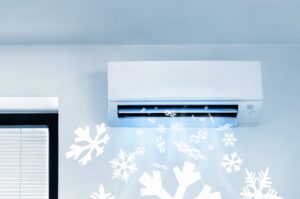We could write 10, 20, or even 100 blog posts about the usefulness of heat pumps, but not all of that information would be relevant to our readers. While scientifically, they’re some of the most interesting pieces of equipment to be developed in the last few decades, that means very little to someone on a tight budget who is exploring their home comfort options. We need to fit the useful information into a blog post so our customers can get what they need, right?
Well, let’s start with some simple pros and cons! Heat pumps are valuable, and we’re always going to be big proponents of Colorado Springs heat pump services. But heat pumps aren’t for everyone, and we’re going to make that very clear today.
So, continue through this blog and make sure you call our team with any questions. And if you think your home is right for a heat pump installation, then get started with us today!
Key Factors to Consider Before Choosing a Heat Pump
It’s important to start with what matters. For our customers, that’s easy. Things like energy efficiency, comfort, convenience, and the ability to be more environmentally friendly are all important considerations to make. That’s where our pro and con guide is going to come in handy!
Benefits of Installing a Heat Pump
Let’s start with the pros of the heat pump system.
- They’re incredibly energy efficient. Heat pumps run incredibly efficiently for two reasons. The first is that they run on electricity, which is becoming cheaper through renewable resources like hydroelectric power and solar panels. The second reason is that they simply move heat instead of creating it, making them powerful allies in the winter.
- Heat pumps are both air conditioners and heating systems. Heat pumps can both cool the air in your home during the summer, and heat the air inside during the winter, giving you a dual-use system that is exceptionally convenient.
- They run on electricity and are better for the environment. Are you looking to minimize your reliance on gas or reduce your carbon footprint? Then heat pumps are the obvious choice for you. They use minimal amounts of energy and can be great for electric heating in the winter.
Drawbacks and Limitations of Heat Pumps
Now let’s talk about some of the unfortunate cons of a heat pump.
- Higher price of the initial investment. Heat pumps are simply more expensive than conventional air conditioning systems or heaters like electric furnaces. However, if you replace both your heater and AC then you can usually get a good deal.
- Power. It gets cold here during the winter, which is why most customers opt for a furnace to work alongside a heat pump. A heat pump simply doesn’t have the strength that a gas or electric furnace does.
- They require HVAC service with specific training. Not every HVAC amateur or even professional can handle the unique technology of a heat pump. Luckily, if you stick with our team, this won’t be a con at all!
Frequently Asked Questions
Question: What are the main advantages of using a heat pump?
Answer: Heat pumps are very energy efficient because they move heat rather than generate it, which lowers electricity use. They work year‑round, serving both heating in cold months and cooling in warm months. They also reduce dependence on fossil fuels and cutting down carbon emissions.
Question: What are the drawbacks or challenges of heat pumps?
Answer: The biggest downside is the high up‑front cost of purchase and installation. Heat pumps may struggle to deliver enough heating in very cold weather without a backup system. They also require technically skilled servicing, which can raise maintenance costs.
Question: In what climates do heat pumps perform poorly?
Answer: In very cold climates (when outside temperatures regularly drop well below freezing), heat pumps lose efficiency and may require an auxiliary heater. Their heating output per unit electricity declines as the temperature differential increases.
Question: How does a heat pump’s efficiency compare to conventional heating systems?
Answer: Heat pumps often reach coefficients of performance (COP) above 1 (i.e. they provide more heat energy than the electrical energy they consume), making them 2–4 times more efficient than electric resistance heaters and more efficient than many fossil fuel systems.
Question: What maintenance or installation considerations are unique to heat pumps?
Answer: Proper siting and installation are critical—incorrect placement or duct design will reduce performance. Outdoor units may need defrost cycles in winter, and filters/coils must be cleaned regularly. Also, because not every HVAC technician is familiar with heat pump technology, ensuring skilled servicing is important.
Contact SoCo Heating and Cooling today to schedule service. So Cool. So Cozy.

